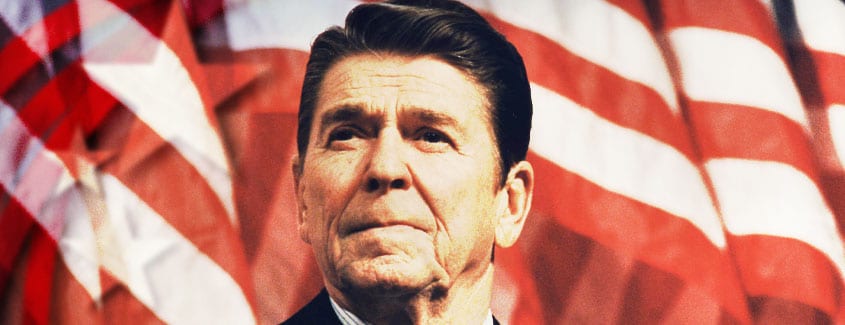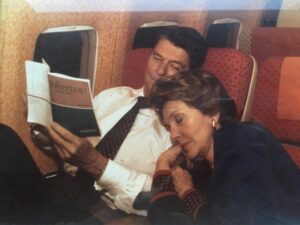
As the end of the year approaches, professional movie reviewers are publishing their lists of the year’s best movies. I am at a stage of life where I don’t go to the movies often enough to presume to name my “Best 10,” but I do want to salute “Reagan”—the biopic of our 40th president, starring Dennis Quaid and based on the biography by our own Grove City College professor, Paul Kengor.
I saw the movie the first day it was released. It did a superb job of recording for posterity the moral values that infused every stage of Ronald Reagan’s career and particularly his historic achievements as president of the United States.
An interesting aspect of the movie was the reaction to it. I wrote an op-ed for The Epoch Times about the reviews of “Reagan,” the movie. While the people who plunked down 10 bucks or whatever to see the movie overwhelmingly loved it, many professional reviewers did not. The common denominator among the negative reviewers was that their ideological biases rendered them incapable of accepting the movie at face value as an honest narration of historical fact. It was more important for those reviewers to refuse to concede President Reagan’s greatness.
Was “Reagan” a perfect movie? Of course not. Is there even such a thing as “a perfect movie?” But it was an excellent movie, and while one could quibble that “this specific story of Reagan should have been included,” it is “mission impossible” to cram all the significant episodes and incidents of a long and amazingly productive life into a single movie.
With that in mind, I offer the following historical tidbit—some bonus material, so to speak—that was not in the movie, but which, in my humble opinion, is worth sharing.
Ronald Reagan gave more than a thousand radio addresses on various public policy issues in the late 1970s. In the late 1990s, Hoover Institution researcher Dr. Kiron Skinner (a Grove City College trustee who has been one of the featured speakers at the college’s annual Ronald Reagan Lecture) found over 670 handwritten drafts of those addresses. Those drafts showed the depth and breadth of Reagan’s knowledge. Americans deserve to be reminded of Reagan’s insight and wisdom, for his ideological opponents persist even today in mislabeling him as an intellectual lightweight.
One area in which Reagan’s intelligence shone most brightly was his understanding of the fundamental flaws of socialism. Reagan grasped the brittleness and fundamental weakness of the socialistic economy of the communist-run Soviet Union, even though Nobel Prize-winning economists and the Central Intelligence Agency were insisting that the Soviet economy was strong and vibrant and would one day surpass the American economy.
The key to Reagan’s conviction was his familiarity with Austrian economics, the most outstanding achievement of which was to explain definitively the inherent unviability of central planning. The economist who solved the socialist problem was Ludwig von Mises, who mentored my own economics mentor, the late Hans F. Sennholz, a longtime Grove City College professor. In the 1970s, Dr. Sennholz was a regular contributor to The Freeman, in which he shared the fundamental tenets of Austrian economics.
At one point in the late 1970s, Hans and his wife, Mary, attended a reception for Mr. Reagan. Mary stood in the reception line. When she introduced herself to the future president, Reagan became quite animated and asked to be introduced to Hans. Reagan told Hans that he had been using many of Hans’ economic ideas for his radio broadcasts. He even quipped that he had been “plagiarizing” Hans (not to be taken literally, of course). Hans, who was never a shrinking violet, replied, “You’ve been plagiarizing good stuff.”
A further indication that Reagan was influenced by Austrian economics is a photograph that I saw years later when I was working at the Foundation for Economic Education, the organization that published The Freeman (see picture to the right). It showed Reagan with Nancy snuggled up against him in the cabin of an airliner, reading a copy of The Freeman.
It is not a stretch to say that President Ronald Reagan’s understanding of Austrian economics was a crucial component of the vision that inspired his 1980s winning strategy of unleashing America’s economic might, forcing the USSR to try to play catch-up and stressing its decrepit system so severely that it imploded. Ultimately, the country ceased to exist. Kudos once more to Ronald Reagan!

